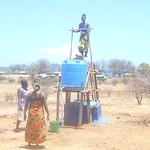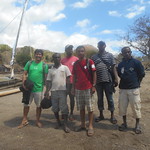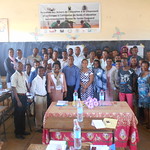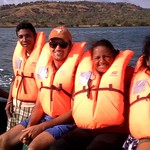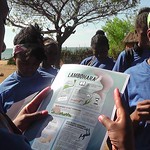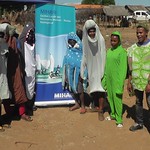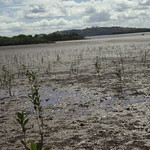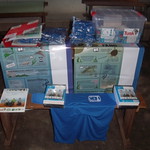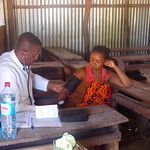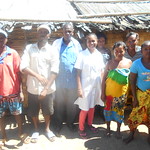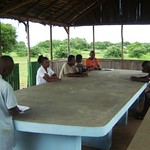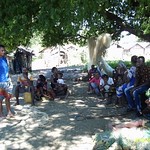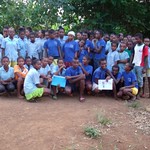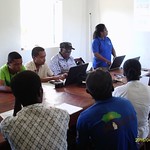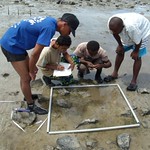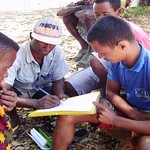Using incentivized environmental stewardship to conserve dugongs and seagrass habitat at an identified national hotspot (MG3).
Madagascar: Nosy Hara Marine Park
$94,077
MG3 seeks to support and strengthen protection efforts in the Nosy Hara Marine Park, which has been identified as the site of highest priority for dugong conservation in the country. The project will train MNP rangers to monitor gillnet use and instruct fishers in the release of bycaught dugongs, and offer further training for MNP rangers and local community members in scientific and community-based dugong and seagrass surveys (seagrass watch, fisher sighting record programme, stranding recovery programme).
MG3 also aims to support the ongoing activities of the Junior Ecoguard group, which will continue to conduct outreach activities raising awareness of dugong habitats and wider marine conservation issues across the remote communities of the Nosy Hara Marine Park.
MG3 will incentivise fishers to conduct monitoring and surveillance, as well as build the capacity of women’s and fishers’ associations in running businesses in the tourism, hospitality and agricultural sectors to diversify income sources and alleviate current fisheries pressure. Furthermore, the project aims to deliver services in terms of improved resources for schools, safe drinking water, maternal health support and enterprise development (tourism, farming, handicraft sales, meat production, etc.).
Deliverables
- Train MNP rangers to monitor gillnet use; train MNP rangers and community members to conduct scientific and community-based dugong and seagrass surveys; and instruct fishers on how to release bycaught dugongs.
- Expand core group of Junior Ecoguards in the Nosy Hara Marine Park to a minimum of 100 members; instruct Junior Ecoguards to produce environmental awareness materials; and produce a youth environmental activity toolkit.
- Train 40 Conservation Ambassadors from across the Nosy Hara Marine Park to support awareness-raising activities for dugongs and seagrass protection.
- Monitor and collect annual data on seagrass health from four key dugong sites.
- Establish two social fisheries enterprises.
- Furnish four local schools.
- Afford local women better access to healthcare services.
- Develop project steering/community environmental stewardship committee.
